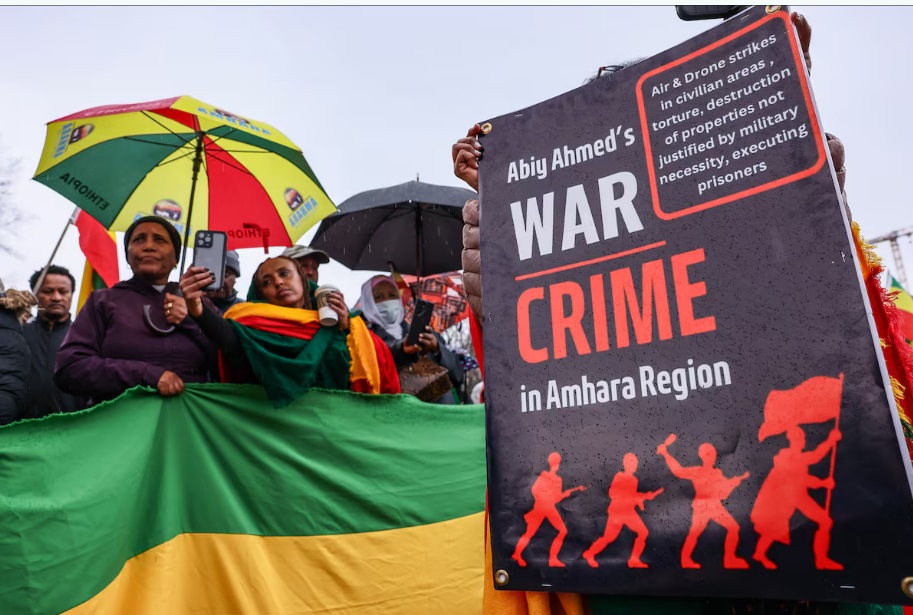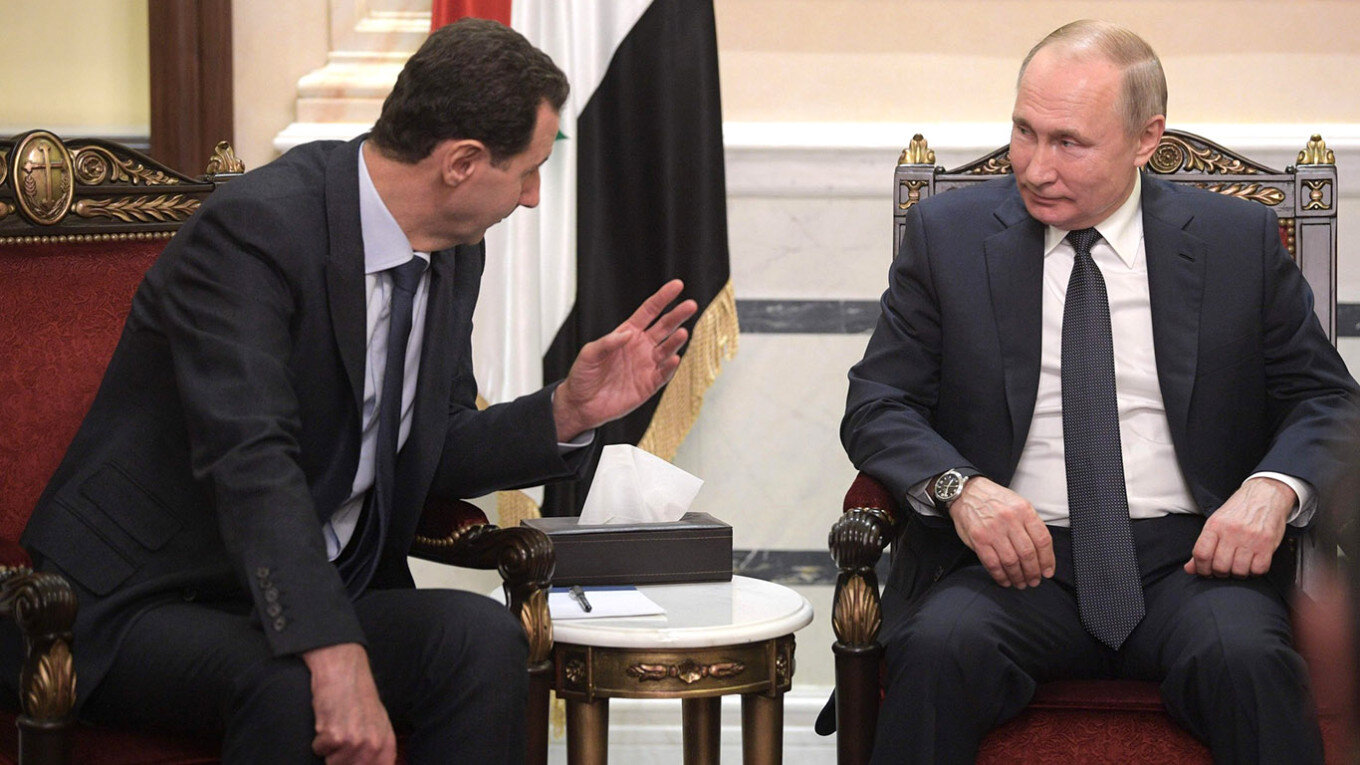![The Great Emperor Menelik II [1844-1913] 1 Minilik II](http://zehabesha.com/wp-content/uploads/2023/06/Minilik-II-3-1-e1686579239426.jpg)
Daniel Kendie [P.hD]
This article is about one of the most prominent leaders of Ethiopia – Menelik the Great – his life in Gondar in captivity under Emperor Tewodros; installing himself in power as King of Shoa [1865-1889]; the re-unification of Ethiopia under his leadership; his struggle against the encroachments of the European colonial powers of the day, and in particular, the Italians ; the Battle of Adwa of 1896; and the carrying out of his wide-ranging modernization programme to make Ethiopia a strong and viable state.
The Emperor Menelik is an internationally recognized statesman. Believe it or not, he is even known in the jungles of Brazil. Marcus Garvey, George Padmore, Jomo Kenyatta, Nnamdi Azikwe, Kwameh Nkrumah, and many others were all inspired by him, thus making Adwa a rallying point in their struggle against colonialism.
In Emperor Menelik, the Europeans found a complex and politically sophisticated leader. Some historians compare him to Bismarck, who united Germany by blood and iron, using force as an essential element to promote the unification process. And yet, Menelik is not without his domestic critics, both in the north as well as in the south of Ethiopia. It has been easy for the critics to pass judgement on a leader who was facing formidable problems, both internal as well as external. One wonders what they would have done if they were in his position.
![The Great Emperor Menelik II [1844-1913] 2](http://zehabesha.com/wp-content/uploads/2023/06/The-Great-Emperor-Menelik-II.jpg)
The Northerners
For the northerners, the seceding of land by Menelik to the Italians was nothing short of treachery. Equally, his reluctance to pursue the Italians and unwilling to evict them from the country, especially after the victory of Adwa, was nothing short of treason. No doubt, when viewed in retrospect, the seceding of land to the Italians by Menelik was a monumental blunder. It resulted in the creation of Eritrea with all its political implications and historical consequences. However, condemning him without let up for the last 127 years for having not evicted the enemy, does not sound a realistic proposition.
Struggling against the forces of 19th century European colonialism was no easy matter. How many African countries were free from being victimized by ‘’the Scramble for Africa?’’ Furthermore, the cattle disease brought from India by the Italians, which resulted in wiping out a significant portion of the livestock population in the country was considerable. Moreover, the devastating drought that appeared brought famine with it. Under such circumstances, neither the tragic social and economic conditions of the country, nor the external challenges and threats that were posed against Ethiopia, could permit such a possibility.
After all, it was the British who sponsored in 1884 the Italian takeover of Massawa, and their further expansion inland. Any attempt by Menelik to evict the Italians from the Massawa area, would have had dire consequences. The possibility of British intervention in the conflict could not have been ruled out. They did not have to come from Manchester or Liverpool. They were there in Aden, northern Somaliland, Kenya, Sudan, and Egypt.
Nevertheless, what was lost by Menelik was recovered in full by Emperor Haile Selassie, and then only to be lost intentionally by Meles Zenawi and his TPLF gangsters who fought for 17 years to make Ethiopia land-locked. What could be more perfidious and treacherous than this? Why are the northern critics silent on this? Is there a double standard?
The Southerners
Menelik’s southern critics portray him as cruel, expansionist, and even colonialist. Such a distorted and misguided portrayal of Menelik is designed to distort Ethiopian history, to portray him wrongly, and to misinterpret Ethiopian nationalism. For the truth is, Menelik was not cruel. He was a kind man who cared for the poor and the needy. As Harold Marcus described him, even if he was not like the Emperor Meji of Japan, Menelik was a progressive leader who thought in liberal terms. He denounced slavery and was against it. As for being expansionist and colonialist, roles are being reversed here. It would otherwise be like the kettle calling the pot black. One should look at ones own fingers first, before pointing a finger at others. The Oromos suitably fit that description. Menelik did not even own any land, except that which he inherited from his family. There also seems to be a fundamental lack of knowledge and understanding of Ethiopian history. Even if he was not a graduate of a world famous university, Menelik was taught Ethiopian history by court historians in Gondar who were hired for him by Emperor Tewodros. He was faithful to those teachings. After all, many of the provinces that he “conquered,” ‘’re-united’’ would be a better term, belonged historically to Ethiopia. They were conquered by Yekuno Amlak (1270-1285); Amde Tsion (1314-1344); Negus Dawit I (1382-1411); Negus Yeshaque (1414-1429); Zare Yacob (1434-1468); Gelawdewos (1540-1559); and Sertse Dengel (1563-1597), before Oromos were to appear on Ethiopian soil. As Harold Marcus notes, although nominally governed from Addis Ababa, local officials enjoyed almost total autonomy.
Edward 1st [1239-1307] brought Wales under English rule in 1298 and Scotland in 1306. England again annexed Wales in 1536 and Scotland in 1707. Such has been the case of the history of nation building of many other countries. Was Ethiopia expected to be an exception?
Menelik’s mission was an attempt to unite the same people who were more alike than different. To those who submitted peacefully, he granted autonomy. These included Wolega, Illubabor, Jimma, the Gibe States and others. In areas like Harar and Arussie where there was resistance, Menelik used force. That is what he did, and that is what leadership is all about – making the right decisions at the right time. How is the Oromo occupation of the best lands in Ethiopia, from the south to the north, from east to west to be explained? As occupation by invaders and colonialists? or liberators from feudalism who in turn imposed their own brand of eviction, assimilation or domination? Even the Amharas who united the country do not own half the size of the land presently controlled by the Oromo. Ethiopia is yet to be liberated from apartheid.
It is essential to consider the matter in the historical context. There is very little historical evidence to support their claim. The truth is, Oromos have been and mostly are still nomadic pastoralists. In their quest for fresh pastures for their cattle, they entered Ethiopia in 1530, and this necessity took them everywhere in the country. They went as far as Axum which they invaded and burned down in 1611. How is this to be explained? In the ecological conditions of the Horn of Africa, it has been established that the average livestock need 14 sq. miles of land anually for grazing purposes. If the Oromo had a cattle population of half a million, then the whole of north east Africa will have to be Oromo territory. Times have certainly changed, but not the values and attitudes. History does not repeat itself, but its circumstances can go in parallel. What are we to say when something that had happened in the past recurs in the present?
There are now millions of Oromo patriots who are proud Ethiopians. Thousands have shed their blood to defend this country from invaders far and near, and millions who labour and toil daily to build Ethiopia. But there are also paid foreign agents who work to advance the interests of foreign countries at the expense of Ethiopia. This must be clearly understood. Just as Ethiopia has trusted and proven friends, it has also established enemies. Faithful to the instructions given to them, the fifth columists make life almost impossible for everybody. Nearly all southern and eastern Ethiopians are constantly becoming fearful of annexation. Thousands of Amharas have been killed by them in Wollega province – historically an Amhara province, whose inhabitants were forced to migrate to Gojjam and Shewa because of the Oromo incursion and pillage.
These days, the terrorists are busy demolishing historic buildings and monuments to eraze Ethiopian history. In Addis Ababa and its surroundings alone, old and new buildings are being demolished. Even churches and mosques have not been spared. To date, some 100,000 inhabitants have been made homeless. All sorts of justifications are being manufactured to explain why they are engaged in so much destruction. I should not generalize. I believe the average Oromo is an honest and descent human being. He is being used by the fifth columnists, as well as by a certain group of the so called elite who exploit his innocence to help advance their political agendas, as their common tutor, the TPLF had done.
The Prime Minister is head of the government, commander in chief of the armed forces and secretary general of the ruling party. With so much power, what is it that hinders him from discharging his responsibility? I do not want to speculate. I will have to do the required research before I say anything of substance.
The Oromos have changed the names of provinces, towns, lakes, and mountains and given them Oromo names, to give the impression that they were the original inhabitants. It should not therefore surprise us that they want to change the name of Addis Ababa to “Finfine,’’ claiming that the land on which Addis Ababa is built belonged to them until Menelik evicted them. Is this true?
If the case were to go to court, the Oromos will be asked to provide material evidence to prove ownership of the land. This includes written forms of proof such as wills and letters, documentary evidence including proof of ownership through inheritance or purchase, paid taxes, testimony of witnesses, stable economic activities such as buildings, fences, farms, and so on.
Native Addis Ababans can win the case with their hands in their pockets. The Oromos have nothing of the type the court will demand. The mayor will have to compensate all those whose homes are being demolished by her orders.
Subsequently, the statues of Emperors Tewodros II, Yohannes IV, Epress Taitu Bitul and Ras Alula should be erected. Ras Gobena Dache, Fitawrari Habte Georgis, Dejach Balcha, Emperor Haile Selassie, Ras Abebe Aregay, Lorenzo Taezaz, Belay Zelleke, Amoraw Wubneh, General Jagama Kello, Lieut. General Aman Mikael Andom, and Major General Mulugetta Bulli, could follow. That would be an evidence that the city belongs to all not just to one group.
Menelik as a Captive of Emperor Tewodros
I will now discuss Menelik’s birth and his life as a captive of Emperor Tewodros. He was born 174 years ago in Tegulet into the Shoan royal family. His father, Negus Haile Melekot had died in 1855 while preparing to fight Emperor Tewodros, who was struggling to re-unify Ethiopia. As a result, the eleven-year-old Menelik was taken to Gondar by Tewodros and raised there along side his own sons and provided education and training befitting the child of a ruler. Menelik himself had confessed that “he always loved me and treated me as his own son.”
Apart from a teacher named Nadew who tutored him in clerical education in Geez and Amharic, Tewodros also assigned for him other teachers in public administration, Ethiopian history, and military affairs. As for law and politics, the entire court itself was a big school. He was instructed to attend the sessions. Menelik learned a lot by listening and watching. He grew up appreciating the need for Ethiopia’s re-unification. Tewodros was so much impressed by his intelligence and maturity, he promoted him to the rank of a dejazmatch and allowed him to get married to his own daughter, Aletash Tewodros. The emperor even revealed to him that “ if you are found equal to the challenge that lies ahead, you could lead the country after I am gone.”
It appears that of all the subjects that Menelik was taught in Gondar, three areas interested him most. [1] fair mindedness, [2] being a fine soldier and an able military commander, and [3] re-unification of Ethiopia. While studying the salient features of the country’s history, he discovered that Ethiopia was a power to reckon with in the glorious days of the Ethiopian state of Axum, and that later on under the leadership of such able and distinguished leaders like Amde Tsion, Negus Yeshaque, Zare Yacob, Sertse Dengel and others, Ethiopia extended from the Dahlaque islands of the Red Sea, to Bale and Gamo, and from Damot whose historical name has been changed to Wolega by the Oromo as well as the port of Zeila, including Awssa, Harar and the Ogaden.
Menelik as King of Shoa [1865-1889]
Once he escaped from Tewodros, Menelik played his cards skillfully and installed himself in power in Shoa. However, it was sometime before he was to be crowned emperor of Ethiopia.
Taitu Bitul
Realistic as he was, Menelik submitted to Emperor Yohannes, who recognized him king of Shoa, and recommended that he be married to Taitu Bitul, whom he had known in Gondar when he served there as one of the appointees of Emperor Tewodros. It was the right recommendation that made Menelik eternally grateful to Emperor Yohannes. For it is said that behind every great man, there is always a great woman. History testifies that Taitu Bitul was no ordinary woman. Menelik respected her intelligence and patriotism. He never acted on major affairs of the state without consulting her. Among other things, she found the city of Addis Ababa, that some misguided individuals want to rename ‘Finfine,’ even if it has no Oromo historical foundation or demographic basis, and that is creating deep resentment through out the country.
When Oromos were searching for fresh pature for their cattle, they did pass through the land on which Addis Ababa has been built. But that did not mean that they were on Oromo territory. Earlier, I said that If the case were to go to court, nomadic pastoralism cannot be presented as evidence of land ownership. Attempting to blow up the statue of Emperor Menelik in Addis Ababa, or to create obstacles to the smooth celebration of the Battle of Adwa on March 2, 2023 would be adding insult to injury. Enough is enough. Anarchism and provocation have their limits. They can lead to unforeseen cosquences.
To her credit, Taitu was also involved in evaluating reports coming from the intelligence services. She provided the thinking for the Italian loss of the water supply of the critically strategic hill that subsequently led to the Italian defeat at Amba Alage. Taitu also led combat ready battalions at the Battle of Adwa in 1896.
Menelik had to build a formidable army to acquire power, and to get access to the available resources. He needed to re-unify the country and, therefore, to identify loyal deputies of the type and caliber of the self-less Gebrye whom he knew at close range in Gondar, and who was ready to take a bullet for Tewodros. There was the formidable Ras Gobena Dache, the audacious Fitawrari Gebeyehu, the patriotic Ras Makonnen, the celebrated and brilliant Fitawrari Habte Georgis, the indomitable Dejach Balcha, and many others.
The Re-unification of Harar
The Egyptians had occupied Harar since 1875 as compensation for serving in Ibrahim al Ghazi’s army during his jihadist plunder and devastation of Ethiopia from 1529-1543. However, due to domestic problems in Egypt and the Sudan, they were forced to withdraw their troops. Emperor Yohannes, therefore, instructed Menelik to lead an army and to occupy Harar before one of the European powers should take it over. We need to note that Harar was conquered by Amde Tsion. In 1559, General Hamalmal and Ras Fassil defeated Sultan Habib and occupied it on behalf of Emperor Gelawdios. Likewise, it was re-conquered by Sertse Dengil in 1577, who brought an end to Harar as a military force.
Taking all this into consideration, Menelik wrote a letter to Sultan Abdullahi informing him that Harar had been an Ethiopian province for 400 years, that administration must now be restored, that annual land tax must be paid as in former times, and that if he submitted peacefully, there will be autonomy of the type granted to Sultan Aba Jifar of Jimma. Abdullahi responded by sending Menelik a Muslim dress and a carpet for use in prayers. As a result, Menelik unleashed his 20,000 strong army that fought for less than fifteen minutes and gave a sustained crushing defeat to the Sultan’s army at the Battle of Chelenquo in 1887. Ras Makonnen took over Harar as governor.
The Adwa Treaty of 1884
The British had requested Emperor Yohannes to help relieve Egyptian soldiers who were straded in the Sudan by the Mahdists, and to give them safe conduct through Massawa. In return, Egypt would vacate the Keren area and hand over to Ethiopia. Ethiopia was to have free passage through the port of Massawa. All this was put in the Adwa Treaty of 1884 between Britain, Ethiopia and Egypt. Ethiopia fulfilled its part of the agreement. Egypt too fulfilled its commitment. But not Britain. It ordered Egypt to vacate the port of Massawa and invited the Italians to occupy the port. The protest of Yohannes was to no avail. Given the colonial competion of the time, France had established itself in Djibouti, hence, Britain wanted Italy to keep an eye on the French from Massawa.
In the meantime, Yohannes had mobilized the army to fight the Italians in the north. However, the emperor was forced to divert the army to the west to fight the Sudanese Mahdists who had brought considerable damage to the city of Gondar and to Begemider and Semien province. Although victorious at the Battle of Metema of 1889, the selfless patriot – Emperor Yohannes – was mortally wounded by a sniper’s bullet where he met an untimely death for lack of appropriate medical attention, thus paving the way for Menelik to succeed him.
The Uchale Treaty
Against the opposition of Taytu Betul, Menelik had signed the Uchale Treaty of April 1889 with the Italians. In return for financial assistance, modern weapons, and recognition as claimant to the throne, he agreed to the Italian occupation of what was yet to become Eritrea.
Emperor Menelik [1889-1913]
There was a conflict in the interpretation of Article 17 of the Treaty. The Amharic version stated that Ethiopia will use the good offices of Italy in dealing with the European powers. The Italian version, however, stated that the Ethiopian emperor is obligated to go through Italian channels for diplomatic representation. When the truth was discovered, Menelik denounced the Treaty as well as the Italian government, paid off Ethiopia’s debt and started preparing for action. Hence, he carefully built the army.
Both the emperor and the empress had serious reservations about the European powers, whom they did not find trustworthy. They strongly believed that they were out to destroy Ethiopia. The exception was Russia that they trusted very much. Weapons were provided by Russia, but some critical weapons were also bought from other European countries, including France.
Furthermore, Menelik expressed his concerns of Ethiopia’s encirclement by European powers, and in a circular letter that he wrote in 1891, he said: “I shall endeavour, if God gives me life and strength, to re-establish the ancient frontiers of Ethiopia. If powers from a distance come forward to partition Africa between them, I do not intend to be an indifferent spectator.”
The Battle of Adwa
The Italians had dismissed Menelik as a barbaric leader of a primitive African people. To their shock and horror, the “barbaric” leader of the “primitive’’ people could build a formidable army , keep the enemy off balance to buy time for preparation, penetrate the intelligence service of the enemy, and contrary to the truth, to encourage his subordiates to spread the word of peace and reconciliation.
A lot has been written about the Battle of Adwa. Briefly stated, more than 70% of the Italian army was annihilated, while the Ethiopian army was intact. It would be no exaggeration to say that the Battle of Adwa was the greatest defeat ever experienced by a European power in Africa. Indeed, as the Spectator of March 7, 1896 wrote, “The Italians have suffered a great disaster, greater than has ever occurred in modern times to white men in Africa. Adwa was the bloodiest of all colonial battles.”
From the point of view of the anti-colonial struggle going on in Africa and Asia, Adwa was inspiring. It made Ethiopia a beacon of African independence. The more so when it was strongly believed by Europeans that their military science and fighting skills would always prevail over any number of the so-called ‘coloured barbarians.’ But it never occurred to them that the same kind of nationalistic pride which drove them to conquest, could also inspire their victims to defend themselves with all the means at their disposal.
The Addis Ababa Treaty of Oct. 23, 1896 which unconditionally abrogated Uchale, recognized Ethiopia’s independence. Such a recognition was expressed in the opening of embassies by the major European governments, as well as the USA, and the demarcation of borders. The Mareb-Beles-Muna boundary in the north was to be observed until final arrangements were to be made, that the Italians would retain most of the land beyond the Mareb-Muna rivers, and that “the Italian government binds itself not to cede or sell to any other power the territory left by His Majesty Menelik II of Ethiopia to Italy.” It was, despite this treaty, that Italy used Eritrea as a base for military operations for its 1936-1941 aggression, changed the boundary which negated the agreement, and handed over in 1943, the territory to the Big Four. As a result, Emperor Haile Selassie’s government declared all agreements Ethiopia made with Italy null and void. It was also despite all this, that Meles Zenawi went to Algiers to negotiate a boundary agreement, that was already made null and void by Italy.
Once Menelik secured Ethiopia’s independence, he devoted much of his time on modernization of the country. He was convinced that without modernization, the country would not be able to keep its independence. There were some educated Ethiopians as well as foreigners to assist him. But Menelik was disturbed by the obstructionist attitude of the ignorant clergy, who opposed his modernization efforts. The telephone, telegraph lines, piped water, the railway, motor cars, airplanes all were denounced as works of the devil. Yet, Menelik continued with the construction of modern schools, clinics, hospitals, banks, roads, railways, and so on, making it possible for Empress Zawditu and Crown Prince Taffari Makonnen to continue from where he left.


















“But Menelik was disturbed by the obstructionist attitude of the ignorant clergy, who opposed his modernization efforts. The telephone, telegraph lines, piped water, the railway, motor cars, airplanes all were denounced as works of the devil.”
=====
Wow! Professor Daniel, what a genius you are that you tell us that Menelik imported airplanes. Whta you forgot is that he did not import it; he manufactured it. He made it in Ethiopia.
Excellent piece! Thank you.
ትውልድ አትታለል በሰላቶ ሐሰት በባንዳ ልጅ ወሬ
ባለውለታ ነው ምኒልክ ላገርህ ምኒልክ ላገሬ
አፋፍ ላይ ቁምና ላልሰማው አሰማ
ምኒልክ ዋጅቶናል በዚያ በጨለማ
አውሮፓ በርሊን ላይ መርዙ እየተቦካ
በባርነት ቀንበር ስትወድቅ አፍሪካ
በነጻነት ስትቀር ኢትዮጵያ ለብቻ
ጥቁሩ ሲያሸንፍ ሲሸነፍ ዳለቻ
መሪው ምኒልክ ነው ለዐብዩ ዘመቻ።
One thing,
I don’t think the clergy could be called ‘ignorant’. Stubborn and obstinate, maybe. However, we should put their resistance in perspective in light of what happened when missionaries were welcomed with open hands all over Africa. Ethiopia’s past also holds ample evidence of evildoers that came in the guise of missionaries and agents of civilization.
Even today, we can see to what ugly depths Prosperity Gospel Party is taking Ethiopia down. Yes the clergy could at times, as in the times of King Tewodros, be obstinate obstacles to change and development. Not all of it could be ascribed to ignorance or mischief. Some of their reservation was enlightened, and with hindsight, justified.
Of course, for some, there might have been conflicts of interest as well as a lack of awareness of what to condemn and what to condone.
How dare you call Menelik as the Great? How dare you? This is it! I just got ordained as a leader of a temple and had moved it to Minnesota. I am gonna summon all my followers there and I will order every one of my 15,000 believers to commit a mass suicide because you call Menelik as the Great. I will leave a note for the FBI to charge you for murdering me and my followers. How dare you call Menelik ‘The Great Emperor’? In fact, we have already committed suicide this morning at dawn right at the center of St. Paul and Minneapolis and were joined by professors in Virginia, Michigan, Tennessee and Gourdie from Down Under. Af-mishar, Pants On Fire and Know-It-All were also with us when committing the mass exodus to oblivion. Because you called Menelik ‘The Great Emperor’ you will be held responsible as an accessory for the mass suicide.
Btw, Knot-It-All had asked me to tell you this before he committed suicide with us. ‘There is no country Ethiopia as such. There is no citizenship in Ethiopia because there has never been a sense of citizenship in Ethiopia. There will never be a nation-state. But his country of Secondo Italia is all that’. Hey, don’t be mad at me for that. I am just passing along his message. Don’t kill a messenger here.
what is this moronic guy saying..i have seen his many idiotic messages and his call for mass murder of Ethiopians. you can call this from comfortable minnestoa – come to Showa and we’ll show you what a great leader Menelik is – even after 100 years dead. you oromos are afraid of ghosts = what type of a silly cult is this gedaa system…next time I see your crazy message, I am going to prepare for you
You’re funny, very funny, man! You made me laugh until it’s hurts, dude. Thanks for the punchline.
ወድቆ ያነሳን
ምኒልክ አንበሳው አህጉር ያስከበረ
የሮማን ቀበሮ ቅስሟን የሰበረ
አንበሳም ብንለው እርሱም ሰው ነበረ።
እርሱም ሰው ነበረ ተነስቶና ወድቆ
እግዜር የሰጠውን ረጅም እድሜ ዘልቆ
መልካሙ ሥራው ነው የሚታየው ልቆ።
እንኳን በመንግሥቱ በሃይማኖት ዓለም
ሰው ሆኖ የማይወድቅ ማይሳሳት የለም
የዓለም ሕዝቦች ሁሉ ታላቅ የሚሏቸው
ስህተት የሚሠሩ የአዳም ልጆች ናቸው
ሚዛን ከደፋ ግን መልካሙ ሥራቸው
እነርሱን ነው ትውልድ የሚያስታውሳቸው
ከቶ ምን ይደንቃል ሰው ሆኖ መውደቁ
ተነስቶ ስላነሳን እዚህ ላይ ነው ብርቁ።
ብቻውን አይደለም ሀገርን ያቀና
ከጎኑ አሰልፎ ከ4ቱ ማዕዘን ስመጥሩን ጀግና
ባልቻ ሀብተጊዮርጊስ አሉላ ጎበና
ንጉሥ ተ/ሃይማኖት መኮንን ጉዲና
ንጉሥ ሚካኤልን የወሎን ሳተና
ሁሉን አንድ አርጎ ነው ድንበሩን ያጠና
እና!
በምኒልክ ታሪክ በገድሉ ብትቀና
እያንገሸገሸህ ትኖራለህ ገና
ነጭን ድል አድርጎ ነጻነት ያጸና
ሌላ አፍሪካዊ አልነበረምና
Know-It-All from the East Coast just shot me an email and told me what Menelik said this to his wife ‘Hey, Europeans are colonizing Africans. I will colonize Africans too’. Then he went south and west and colonized. That is why there is no sense of citizenship in Ethiopia. Best example is when citizens there are bombed and raped nobody wants to talk about it. But in my Eritrea the sense of citizenship is so strong that citizens were never bombed, raped or arrested by their government. That is why they’re never been nation state or a sense of citizenship in Ethiopia. In fact Ethiopia never existed and does not exist even now. Some people just use that name illegally’.
Then Af-mishar shot me an email and told me how Menelik did his colonization. He said ‘Ethiopian rulers can mobilize a huge army just like that. Menelik was able to mobilize more than 600,000 men and overwhelmed native people including my Somalis, Somali Abos and Somali Hararis. I have the list of names of those 600,000 men Menelik mobilized in 1880 and again in 1896. You know what he did to the Italians in 1896. He massacred 35,879 innocent Italians at Adwa that year who were there on humanitarian mission from the Red Cross, Médecins Sans Frontières(Doctors Without Borders) and Amnesty International. He just murdered them. I have the list of names of all those 35,879 innocent Italians massacred by Menelik at Adwa in 1896. I am planning to file a lawsuit against Menelik for that crime alone at The Hague. My Somali Abo college professors from Minnesota, Georgia, Virginia, Michigan and Gourdie from Down Under will be there to support me when I file the lawsuit. Hey Menelik! You’re toast!!!’.
I have been crying rivers for those innocent and unarmed Italians killed by Menelik at Adwa in 1896. I propose the 2023 Pulitzer Prize for Af-mishar.
ምንልክስ ትልቅ ሰዉ ነበረ፤ አለመታደሉ ግን በቂጥኝ፤ በጮብጦ፤ በቁምጥናና በፍንጥጣ በሽታ መሞቱ ነዉ።
ወንድም ዳኒኤል፦
ስለ ጥቁር ዘር ጋሻና የኢትዮጵያ አባት መጻፍህ የሚያስመስግን ነው። የደቡቦች ወንድሞቻችን ምኒልክን የሚጠሯቸው ስለ አሜሪካ የእርስ በርስ አውዳሚ ጦርነት፣ ስለ ቢስማርክ የጀርመን አንድነት የኃይል ምሥረታ፣ ስለ ጣሊያኑ ጋሪባልዲ ጦርነትና ስለሌሎችም የዛሬ ኃያላን አገሮች ምሥረታ ስልማያውቁ ነው። ጋሸ መስፍን ይል እንደነበረው፣ “ደንቆሮ ደፋር ነው”።
ሰሜኖቹ፣ ምኒልክን የሚጠሏቸው የመንደራቸውን ታሪክ ስለማያውቁ ነው። አንተም እንዳስተማርኸን፣ ጣሊያን እኮ ኢርትራን ወርሮ፣ አስመራ ገብቶ ባሕር ምድር ይባል የነበረውን ስም ወደ ኤርትራ የለወጠው በአፄ ዮሐንስ የግዛት ዘመን ነው። እነ ከረንም በግብፆች/ቱርኮች የተወረሩትም በአፄ ዮሐንስ ዘመን ነው። ጣሊያን ኢርትራን ቅኝ ለመግዛት ምፅዋ ላይ የሰፈረውም ከእንግሊዝ ጋር ባደረጉት ያላቻ ውል መሠረት በአፄ ዮሐንስ ዘመን ነው።
በዮሐንስ የተደረገውን ጥፋት ሽፋፍነው በቅርቡ ኤርትራን አስገንጥለው ወደብ አልባ ያደረጉንና ራሳቸውንም መተንፈሻ ያሳጡ እነዚሁ በምኒልክ ላይ ክስ እየፈጠሩ የሚያለቃቅሱ ሰሜናውያን ናቸው። የሚገርመው ደግሞ ምኒልክ ኤርትራን ለጣሊያን አስረከበ ብለው እየወቀሱ፣ ኤርትራ ቅኝ አገር ናት ብለው ያስገነጠሏትም እነሱው ናቸው። አንዴ የኢትዮጵያ ናት፣ ሌላ ጊዜ ቅኝ አገር ናት እያሉ መዘላበዳቸው ከእውነት ጋር የተጣሉ ለመሆናቸው ምስክር ነው። ኤርትራ የኢትዮጵያ አካል አይደለችም ብለው ካመኑ፣ ምኒልክን በኢርትራ ጉዳይ መውቀሱ ምን አመጣው ?
The author claims :
“The Oromos have changed the names of provinces, towns, lakes, and mountains and given them Oromo names, to give the impression that they were the original inhabitants. It should not therefore surprise us that they want to change the name of Addis Ababa to “Finfine,’’ claiming that the land on which Addis Ababa is built belonged to them until Menelik evicted them. Is this true? If the case were to go to court, the Oromos will be asked to provide material evidence to prove ownership of the land. This includes written forms of proof such as wills and letters, documentary evidence including proof of ownership through inheritance or purchase, paid taxes, testimony of witnesses, stable economic activities such as buildings, fences, farms, and so on. Native Addis Ababans can win the case with their hands in their pockets. The Oromos have nothing of the type the court will demand. The mayor will have to compensate all those whose homes are being demolished by her orders. ”
I would throw at you the same argument ” You and other Ethiopians who continue to lie about the history of your country would be asked by any court to provide a single evidence that Eritrea was part of Ethiopia”. Ethiopia did not exist before the scramble for Africa. The great grandson son of Shiekh Ali (you call Hailesellasie) invaded Eritrea. Aleke Dekeke.